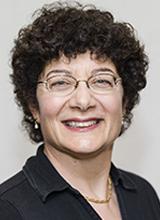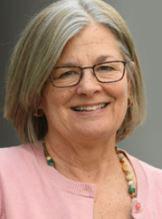Date Posted, by Susan Jenks
Recruitment has begun for a clinical study that investigators hope will move “liquid biopsy” technology closer to its still-distant goal: a single blood test for the early detection of cancer. Collectively known as multi-cancer early detection (MCED) assays or sometimes multi-cancer detection assays (MCD), this new advancing technology is a promising concept for cancer screening, but there are key unanswered questions.

Lori Minasian, M.D.
The Alliance for Clinical Trials in Oncology, funded as a NCORP Research Base by the National Cancer Institute, seeks to recruit 1,000 patients with cancer and 1,000 healthy individuals without, whose blood will be used to test candidate blood-based assays that are now in development. The study, “Collecting Blood Samples From Patients With and Without Cancer to Evaluate Tests for Early Cancer Detection,” will store participants’ donated blood in a biobank at the NCI for further use.
The blood bank is the first step towards finding and validating blood-based assays to include in the future feasibility study and a large randomized clinical trial, said Lori Minasian, M.D., the deputy director of NCI’s Division of Cancer Prevention. “NCI is trying to put into place an infrastructure to verify which of these tests detects cancer early enough to make a difference in individual risk or to reduce overall cancer mortality,” she said.
Over the past decade, rapid strides in the understanding of tumor biology have created what scientists describe as a tidal wave of interest in liquid biopsies that scour the blood or other bodily fluids for the molecular fingerprints of a developing cancer. Refinements in DNA sequencing technology, along with advances in biometrics, already allow clinicians to target many cancer-related genes to treat advanced disease, or to track cancer progression as tumors strive to outwit immune detection, among other uses.
MCEDs Are Promising and Unproven
As a screening tool for early cancer, multi-cancer detection assays, while promising, investigators say, raise concerns about overdiagnosis of indolent disease and potential harm from unnecessary and invasive procedures in individuals with no known malignancies.
“Many of these assays are being heavily marketed to both providers and to patients (for early detection), but their true value is not yet clear,” said Marie Wood, M.D., the principal investigator of the new biobank study. She is also the medical director of the Cancer Clinical Trials Office at the University of Colorado Cancer Center.

Marie Wood, M.D.
Blood-based assays have the potential to find early disease and improve survival in hard-to-detect cancers, which currently lack screening techniques, Dr. Wood said. The blood donated to the biobank will help to answer that question. “Most importantly, we need to know how they stand up to the standard screening tests for cancer that we have in place,” such as colonoscopies or mammographies, which have proven highly effective in detecting early disease, but focus on a single type of cancer, she said. In multicancer detection assays, “you’re not looking for only one cancer, you’re looking for the tissue from which it arises, so there’s the potential to tell us a lot about many cancers,” in a single blood draw, she said.
Investigators in the MCED biobank study plan to collect a reference set of blood samples from newly-diagnosed cancer patients with both early-and-late-stage disease, as well as from healthy volunteers, including patients’ family members or friends. Donors also are being asked at study entry to fill out questionnaires about their general health and cancer risks, such as genetic links or smoking histories, although no study results will be shared with them in this initial research phase.
All of the collected blood will go into NCI’s biobank, where it will be housed for later distribution to companies and academic centers hoping to bring these early detection cancer tests into NCI clinical trials, which could lead to routine clinical use. Because the samples’ origins are concealed, none of the developers will know the details of the samples they receive—whether the blood comes from a cancer patient or someone who is still healthy.
Developers Interested In MCED Biobank Study
So far, 14 companies have expressed an interest in collaborating with NCI to evaluate assays for cancer screening, as have three academic institutions. The assays to be evaluated take several approaches to identifying a broad range of cancers at various stages of disease. Some tests measure whole tumor cells in the blood, while others look for the DNA tumors shed as they grow and metastasize. Still others track genetic debris circulating in the bloodstream—DNA, RNA and metabolites—for signs of a single cancer or many cancers long before symptoms appear.
“There is no one perfect test,” Dr. Minasian stressed, which is a reflection of cancer’s complexity and the challenges researchers face. “We need to understand how to use different tests in people with different risk levels.”
Although collecting the blood samples to fill the MCED Reference Set could be completed in a year’s time, she said, it could take longer. As the research progresses investigators may find, for example, that sample numbers are insufficient for a particular cancer and need to modify them going forward.
For more information or to see participating locations for this study, visit the ClinicalTrials.gov page.
If you would like to reproduce some or all of this content, see Reuse of NCI Information for guidance about copyright and permissions. Please credit the National Cancer Institute as the source and link directly to the blog post using the original title, for example: "Samples from People With and Without Cancer Could Help Verify Future Blood Tests to Detect Cancer Early was originally published by the National Cancer Institute." For questions, contact us at CancerPreventionBlog@mail.nih.gov.
